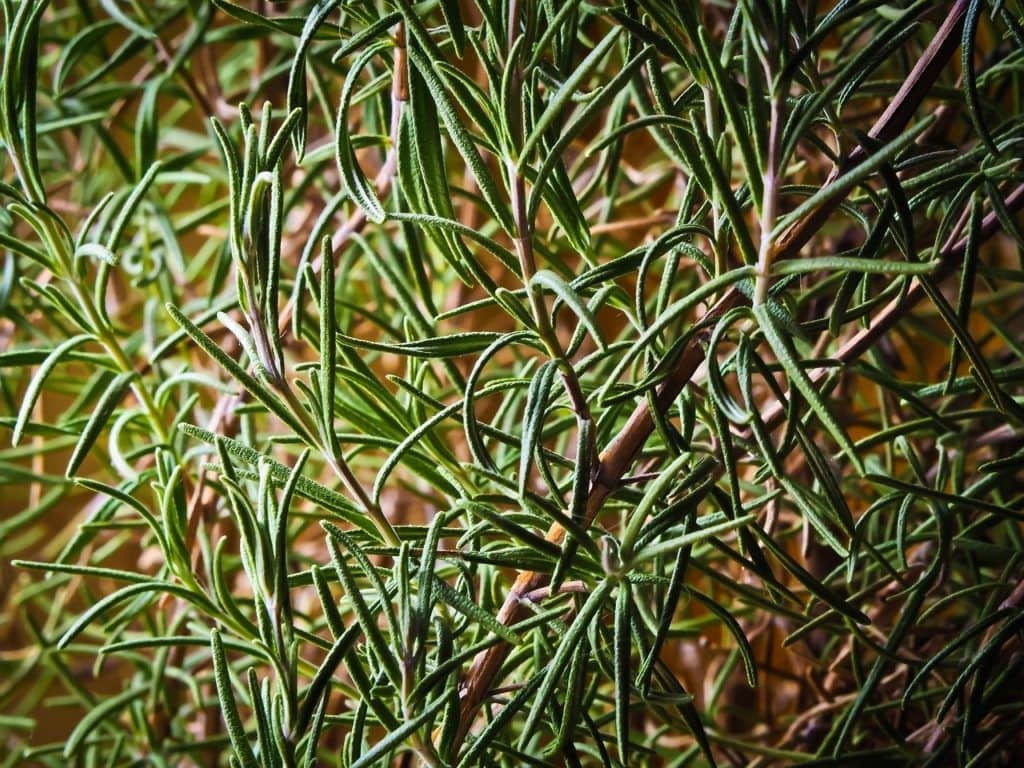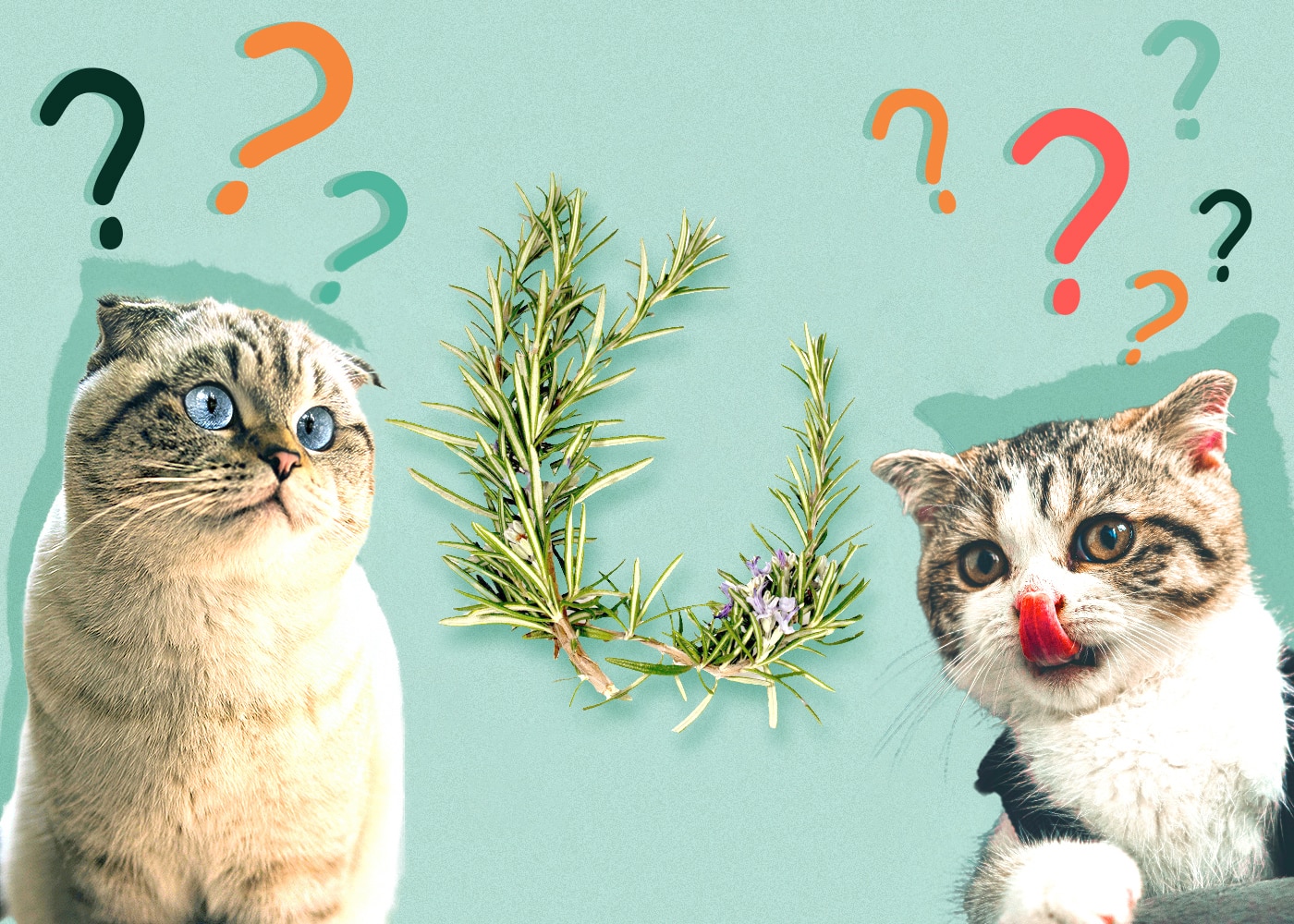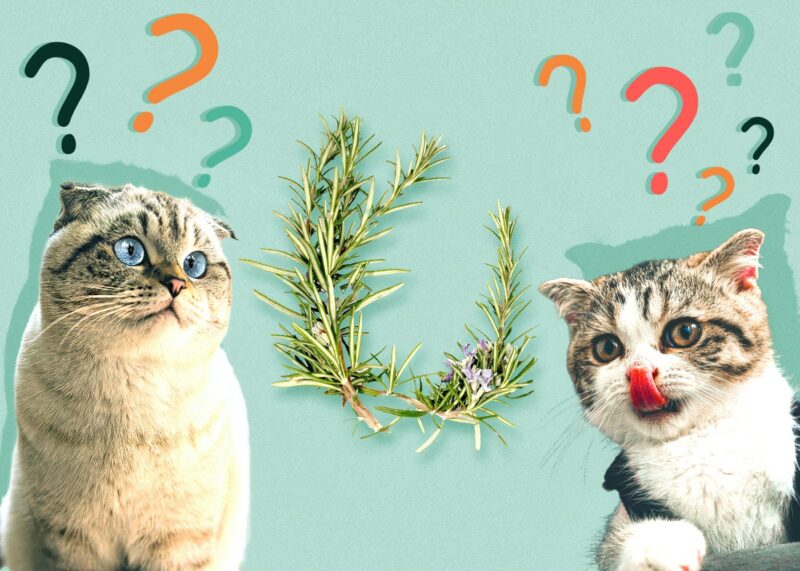If you like to cook for your cat, you might be tempted to sprinkle a little rosemary on their chicken. Or maybe you’ve brought home a rosemary plant and noticed that your cat likes to munch on it.
Then it occurs to you — wait, is that safe? Or are you possibly exposing your feline friend to a toxic plant that could do serious damage to them?
Regardless of whether you’re just playing it safe or are desperately searching for answers after already letting your cat feast on the stuff, we’re here to let you know that your cat should not eat rosemary.
Is Rosemary Safe for Cats?
According to the ASPCA, rosemary is not toxic for cats, which means it won’t kill them to eat it.
Rosemary is filled with oils, and these oils can upset a cat’s stomach if consumed in sufficient quantities, so it’s best to discourage your cat from eating it even if it won’t kill them.
As discussed above, it’s unlikely that your cat will enjoy the taste enough to mow through enough rosemary plants to upset their stomach, but cats have certainly eaten weirder things.
Food that’s been seasoned with rosemary isn’t overly problematic, except for the fact that your cat shouldn’t eat human food. If your cat gets ahold of a table scrap, it’s usually not a cause for concern. Just don’t let it become a habit.
What Is Rosemary?
Rosemary is considered a culinary herb used in cuisine across the globe. It has a lemon-pine flavor, and it’s often paired with foods like lamb, pork, and pizza sauce.
While you can buy rosemary at the store, many people like to grow their own at home because it’s easy to manage and doesn’t require much space.
Some cats will eat rosemary plants if given the opportunity, but many animals don’t care for the taste or the aroma. As a matter of fact, it’s often used as a deterrent against deer and other pests.

Does Rosemary Have Any Health Benefits for Cats?
Maybe, and we say this with great hesitation. The plant is filled with antioxidants, and some of them have impressive effects on cats. However, we could not find any evidence of health benefits from feeding rosemary to cats.
Learning about what your cat can and cannot eat is a crucial part of keeping them happy and healthy! Choosing a bowl to serve cat-friendly foods in is another important decision pet owners face. Satisfy the specific needs of your cat with the innovative design of the Hepper NomNom Cat Bowl. Learn why it’s our (and our cats!) favorite food and water dish here. At Catster, we’ve admired Hepper for many years and decided to take a controlling ownership interest so that we could benefit from the outstanding designs of this cool cat company!
What’s the Verdict? Is Rosemary Safe for Cats?
If you’ve already caught your cat chowing down on your rosemary plant, don’t panic — it won’t kill them. Worst-case scenario, you’ll have a big mess to clean up in the litter box (but what else is new, right?).
In fact, you should likely encourage your cat to eat as much rosemary as their stomach can handle, as it offers several important health benefits. It’s unlikely that your cat will listen to you, though, as many animals can’t stand the taste or the smell of the stuff.
Related Reads:













